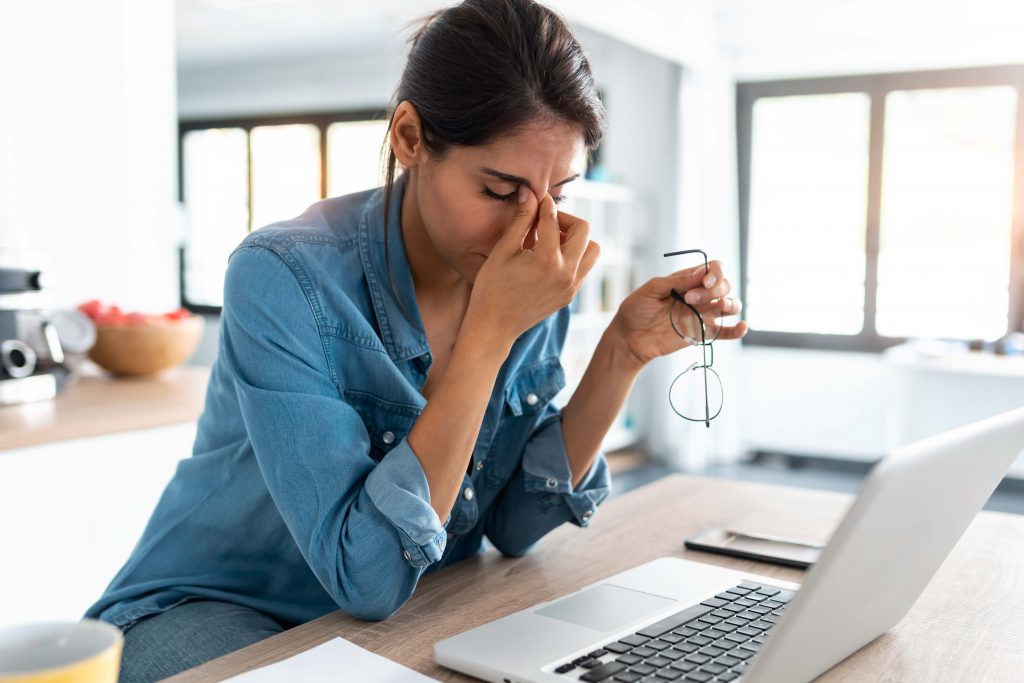The world is a stressful place right now.
The COVID-19 pandemic saw a surge in mental health issues, with statistics from the World Health Organization reporting a worldwide increase in depression and anxiety of over 25%, with a particular impact being had on young people and women.
The root of much of this increase may be attributed to basic sociological needs not being met; humans are social beings, and basic human interaction is known to be essential for maintaining optimal mental and physical health.
For example, evidence has linked social isolation to several health conditions, including increased vulnerability to mental illness, impaired executive dysfunction, dementia and cognitive decline, poor immunity, and cardiovascular issues.
In addition to the isolation issues, many households’ financial stability has also been affected.
The inflation following the COVID-19 pandemic has impacted much of the country and caused many essential costs to rise, while in 2021 the amount of food bank parcels distributed across the UK reached an all-time high, with 2.5 million parcels being delivered by the Trussel Trust alone – an increase of 33% on the previous year.
Businesses were hit similarly hard by the pandemic, with the rate of business closures being 50% higher in 2021 than in 2020. The closing of schools also put more pressure on parents with caring responsibilities, and made it more difficult for them to achieve a work-life balance.
Bereavements of friends and family are also trauma factors that play a significant role in experiences of stress. And while bereavements are usually supported in community settings, the social distancing rules that were in place until recently meant that many individuals and families have been unable to seek support from their community.
With NHS waitlists for mental health treatment overwhelmed, and few able to afford private therapy, it seems we need to place more emphasis on taking preventative measures. This involves reducing our vulnerability to stress as individuals, taking more personal responsibility for educating ourselves about mental health, and finding strategies to support our own wellbeing during difficult times.
The Psychology Of Stress
To understand how to fight stress, it’s important to know some of the theory behind what causes it.
When treatments for mental health conditions were first developed, there were three main ‘waves’ of thought. In short, these beliefs were that stress and mental health problems were caused by either biological, psychological, or social factors.
Biological factors: e.g. underlying illness, genetic factors, lifestyle and dietary factors, exercise levels
Psychological factors: e.g. personality, early life experiences, trauma responses
Social factors: e.g. housing, employment, the wider community, family, partner, friendship circle
Our modern understanding of stress has become more nuanced, and now, health services are based around the concept of the ‘biopsychosocial’ model – in short, that all these aspects play a part in the formation of a person’s mental state and personality.
In other words, there is not ‘just one’ factor that feeds into stress: it’s a combination of many separate issues.
From your own life, think of one example each of a biological, psychological, and social stressor. How have they shaped your personality and stress responses?
The Biology Of Stress
Your biology and hormones play a key role in regulating stress levels.
When you come into contact with something dangerous, the information is processed by your amygdala, which is a ‘control centre’ at the bottom of your brain.
If your amygdala perceives a threat, it sends an ‘alert’ to your hypothalamus, which sends a ‘message’ to your adrenal glands to release epinephrine – more commonly known as adrenaline.
Adrenaline prepares your body to either fight or run – your heart rate goes up, which pumps blood to your muscles, your blood pressure also goes up, and you begin to breathe more quickly, which helps more oxygen reach your muscles. Also, your digestion becomes slower, to help you be more ready to escape danger.
If the danger does not subside, a hormone called cortisol kicks in. Cortisol drives the stress response and keeps the body and mind alert to any danger.
In a natural situation, this would be the perfect adaptation for intense periods of danger that are followed by relaxation periods. The problem is, in the modern era, we live with a level of continuous stress from our careers and life circumstances, instead of the natural highs and lows that our bodies are adapted for.
This means that many of us have high levels of adrenaline and cortisol for longer than we naturally would do, which contributes to longer-term feelings of anxiety and stress.
So, how do we overcome these factors that contribute to stress?

Tip 1: Exercise
As you’ve already learned, cortisol is one of the hormones that, when imbalanced, can contribute to long-term stress. The good news is, there is something very simple that helps to regulate cortisol levels: light exercise!
Exercise has an interesting relationship with the cortisol hormones in your body.
If you do too much high-intensity exercise, extra cortisol is released due to the stress on the body. But if you do low-intensity exercise, such as yoga, tai chi, walking, swimming, jogging etc., it actually helps to lower your cortisol and adrenaline levels, meaning your stress levels will likely fall as a consequence.
Tip 2: Breathe Deep
It is well established that meditation, breathing exercises, and mindfulness all have a positive effect on cortisol and adrenaline levels.
Deep breathing causes the parasympathetic nervous system to kick in by signalling to your brain that the danger has passed. Your body stops releasing cortisol, and the parasympathetic nervous system instead releases relaxing hormones to help you wind down.
Practising mindfulness is also helpful mental training to be able to handle stress more efficiently.
Training your mind to concentrate on the current moment – instead of worrying about the past or the future – helps you to stay grounded and present, make more effective decisions at home and at work, and process current events more efficiently.
Be aware that mindfulness does not have to mean meditating for several hours at a time.
For a simple grounding exercise that you can do anywhere, simply notice your breath, without consciously trying to alter it.
Continue to observe your breath until it begins to slow down of its own accord. Then, ground yourself in the moment, and turn your attention to your senses. Name three things you can see, three things you can hear, three things you can smell, and so on.
Tip 3: Diet
Eating a balanced, healthy diet can help to reduce stress by keeping your gut microbiome at its optimal level, and by giving your brain the nutrients and energy it needs to operate efficiently.
A healthy diet high in essential fatty acids and vegetables will assist in controlling cortisol levels and reducing oxidative stress on cells from free radicals.
In addition, fibre, prebiotic, and probiotic foods help to maintain your gut biome, which will prevent your gut from sending ‘distress’ signals to your brain.
Eating low-sugar foods with slow-release energy – such as wholegrain and proteins – is also important, as they ensure that energy is released gradually throughout the day, instead of in patterns of spikes and falls, which can lead to feelings of irritability and/or lethargy.
Tip 4: Face Your Thoughts
Unhelpful thinking patterns and coping strategies can lead to destructive behavioural cycles that increase stress in the long run.
If you find yourself having thoughts that cause you distress, and which make it difficult to control your behaviour in the long run, it may be worth exploring this further.
Many people think that you have to go through formal therapy to start changing thought processes and behaviours. And while it certainly helps to go through the process with a professional, it is not essential.
Your feelings, thoughts, and behaviours are a cycle that perpetuates itself. For example, if you feel depressed, you might think ‘what is the point of getting up?’, and use that reasoning to stay in bed.
However, if you do stay in bed for an extended time, you won’t have any good experiences, meaning you will continue to feel sad, and will continue to stay in bed.
But by changing our responses to our emotions and thoughts, we can help to break the cycles that hold us back, allowing us to grow and form new patterns of behaviour as a result.
There are many online resources and self-help books that can help you to better manage your responses. Websites such as www.getselfhelp.co.uk have uploaded worksheets from many different types of therapy, including CBT and DBT, where you can learn new skills from home.
Why not get reading and see what approach works best for you?
Tip 5: Consider Your Needs
It might seem obvious, but you will be stressed if your basic needs are not being met.
For example, if you are stressed about your accommodation, food security, or personal safety, it will be very difficult to stay in a healthy frame of mind. Consider what is making you stressed; is there anything you can do about it?
If you are worried about your job security, can you look into other jobs on the market? If you are struggling to find the money for your bills, can you cut back in other areas of your life, or perhaps take out a temporary loan? Are there any people in your life who are overstepping your boundaries? And can you reassert your own needs in those relationships?
Try to identify any factors in your life that are contributing to your stress levels, and make small steps towards resolving them.
You don’t have to make drastic changes overnight. In fact, the smaller and more achievable the steps you take, the more likely they are to stick in the long run!


